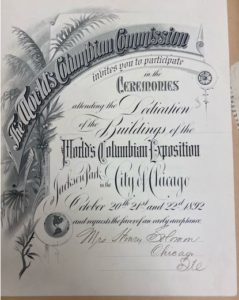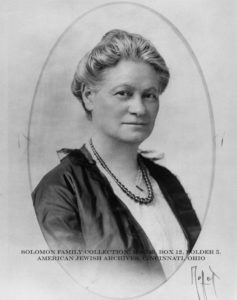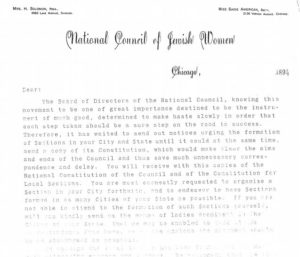The National Council of Jewish Women (1893): Working Towards Justice
The National Council of Jewish Women (NCJW) issued its founding resolution on September 7, 1893. Organized by Hannah Greenebaum Solomon (1858–1942) during the World’s Fair in Chicago, the NCJW emerged as a leading voice for social reform in this period. Solomon was born in 1858 in Chicago Illinois and in 1876 was elected to the Chicago Women’s Club, an elite group with a rigorous course of study. Many of Solomon’s ideas for the NCJW came from her experiences in the Chicago Women’s club and its emphasis on philanthropy and education. Solomon felt that philanthropy was an important area of work of the NCJW and expressed their Jewish faith. However, as president Solomon steered the council towards Judaism as its strongest principle.
The National Council of Jewish Women advocated for children’s rights within the legal system, offered vocational training for girls and women, and promoted nutrition in the public school system. The NCJW also worked on behalf of Jewish immigrants and their families in the United States and reached out to support impoverished and persecuted Jews in Eastern Europe and elsewhere. Through a partnership with Jane Addam’s Hull House, the NCJW was at the forefront of the settlement housing movement. Another early leader of the NCJW, Rebekah Bettelheim Kohut (1864–1951), became president of the New York section of the NCJW in 1894.

An RSVP card to the World’s Columbian Exposition (Worlds’ Fair) signed by Hannah G. Solomon using her husband’s title – Mrs. Henry Solomon. Oct. 1892. American Jewish Archives, Cincinnati, Ohio.



